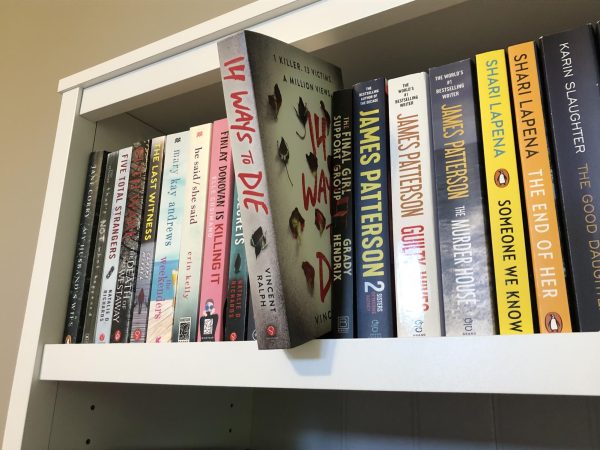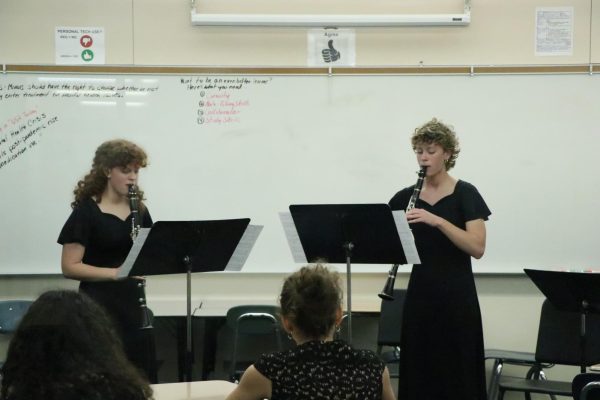Hidden in plain sight
A review of Phoebe Bridgers’ “Punisher”
On the cover of her second album, Bridgers stands in the middle of the California desert in her trademark skeleton costume.
Phoebe Bridgers entered the music scene with resounding force when she released “Stranger in the Alps” in 2017. Making a name for herself, Bridgers went on to collaborate with the likes of Connor Oberst, Lucy Dacus, and Julien Baker and received critical acclaim for her various endeavors. In June of 2020, Bridgers released her sophomore album, “Punisher”, and further proved herself in her ability to craft meaningful lyrics and unique instrumentals.
Bridgers’ collaborations with a range of artists also make for a unique and dynamic listening experience. Oberst, Bridger’s bandmate in Better Oblivion Community Center and frequent collaborator on “Stranger in the Alps”, makes an appearance on “Halloween”, while Baker and Dacus, Bridgers’ bandmates from Boygenius, make an appearance on “Graceland Too”. Bridgers’ drummer and co-songwriter, Marshall Vore, makes a vocal appearance on “ICU” as well as providing percussion accompaniment and songwriting on several tracks.
At its core, “Punisher” is an album that showcases the contrast between dreams and reality and how those manifest in growing up and falling in and out of love. With songs like “Savior Complex” and “Graceland Too” you see an almost juvenile belief that you can make someone love you by giving them whatever they want. “Moon Song” is a more mature take on that theme, showing the reality behind that sentiment by portraying Bridgers in a relationship with someone who may not love her in the same way. “Garden Song” perfectly embodies the sense of thinking you know everything when you’re young and then growing up and realizing that you had it all wrong.
Along with being a skilled storyteller, Bridgers is also a master of creating songs that contrast each other. With the songs “Chinese Satellite” and “I Know the End” the listener is faced with two opposing views of death— rooted in religion and a lack thereof. “Halloween” tells the story of a couple that is pretending to be happy together, while “ICU” shows exes who acknowledged that it wasn’t working out.
Bridgers’ incredible lyricism is prominent on the album’s title track. A stunning song with haunting visuals, “Punisher” represents Bridgers’ infatuation with Elliott Smith, a late singer-songwriter whose posthumous success familiarized him with those into the indie-rock genre. The term “punisher” refers to a “superfan” of somebody, who may be that person’s well-intentioned worst nightmare. “But from the window it’s not a bad show/ If your favorite thing’s Dianetics or Stucco” and “A copycat killer/ with a chemical cut/ either I’m careless or I want to get caught” are lines that show her ability to write intricate lines that refer to Smith and sound eerie over ominous instrumentals.
Portraying a complicated relationship with her father, “Kyoto” highlights Bridgers’ ability to create tension between the subjects of her story, a skill that is found few and far between in songwriting. The song opens with vivid descriptions of Japan juxtaposed with a sense of animosity for being on tour — a sentiment that Bridgers’ expresses throughout the album. At the center of the story, being told through “Kyoto” is Bridgers’ relationship with her estranged father. The lines “I’m gonna kill you/ If you don’t beat me to it” express simultaneous anger and empathy for her father, who struggled with substance abuse throughout Bridgers’ whole life. The sense of juxtaposing compassion and animosity becomes more contradicting toward the end of the song as Bridgers sings “Guess I lied/ I’m a liar/ Who lies/ ‘Cause I’m a liar”.
Bridgers’ astonishingly complex songwriting is abundantly clear in the seventh track on “Punisher”. “Moon Song”, similarly to “Halloween” and “Graceland Too”, express Bridgers’ desire to do anything for somebody she loves, even if they aren’t the best person for her to be with. A later track on the album, “Savior Complex”, expresses a similar yearning for what sometimes may be a toxic relationship. Bridgers’ special ability to show you a story rather than tell you is extremely refreshing and also heartbreaking when listening to these songs.
To end a masterfully crafted album, Bridgers makes sure to leave an impact on listeners with the final track, “I Know the End”. A nearly six-minute song, “I Know the End” begins by setting the scene as a desolated and depressing landscape. With references to “The Wizard of Oz”, Bridgers portrays feelings of restlessness and a desire to get out of a town that she feels she has outgrown. A couple of minutes in, the song quickly ramps up to something that can only be described as a panic attack in the form of a song. Bridgers expresses an acceptance of “the end” as portrayed by a billboard next to the freeway— a juxtaposition to the fear of death previously referenced in “Chinese Satellite”. Screaming vocals are provided by collaborators on other songs to create an explosive ending to an unforgettable album.
Following the release of “Punisher”, Bridgers has received critical acclaim from music websites such as Pitchfork and mainstream publications such as The New Yorker. Bridgers has received four Grammy nominations, including one for Best New Artist, and has worked to make a name for herself in the music industry. Off to a great start with two memorable albums, Bridgers will be one to watch.
Your donation will support the student journalists of West Linn High School. Your contribution will allow us to continue to produce quality content by purchasing equipment, software, and continuing to host our website on School Newspapers Online (SNO).

Lily Gottschling, senior, is the Copy Editor-in-Chief for wlhsNOW.com. She loves writing reviews, features, and opinions. She is also a co-host of the...


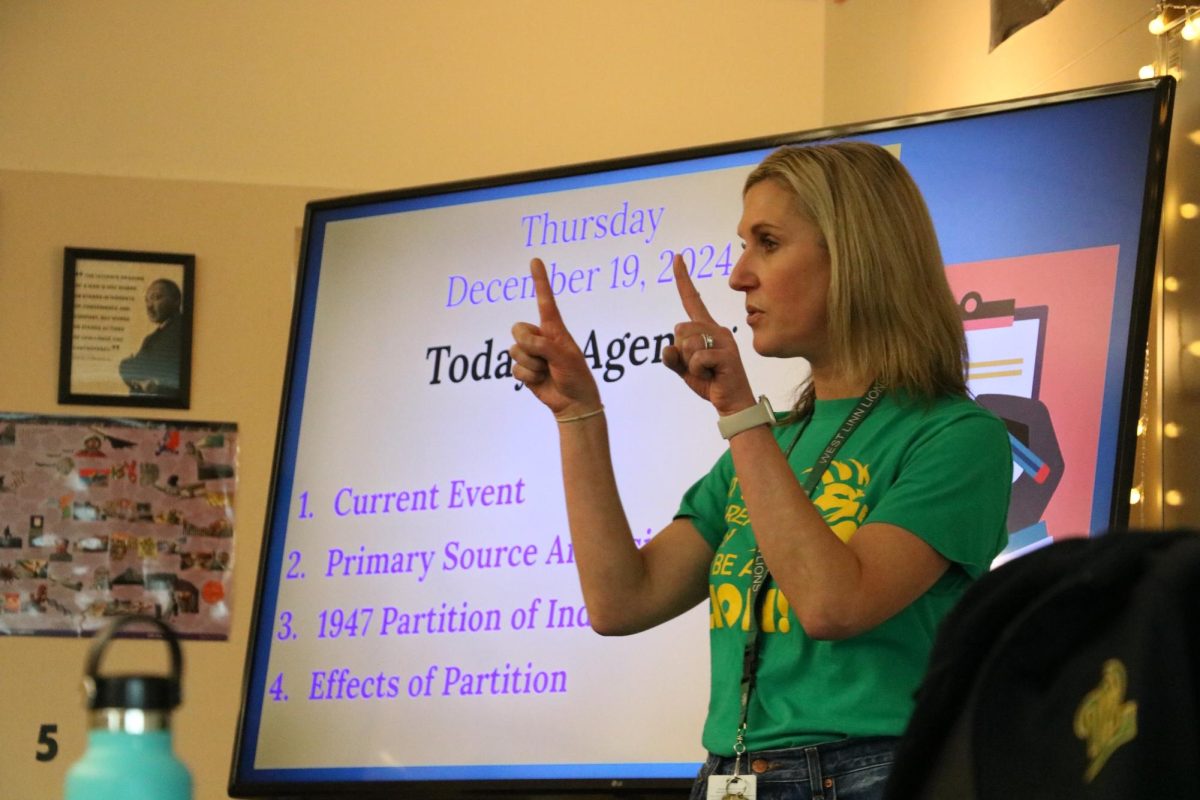





















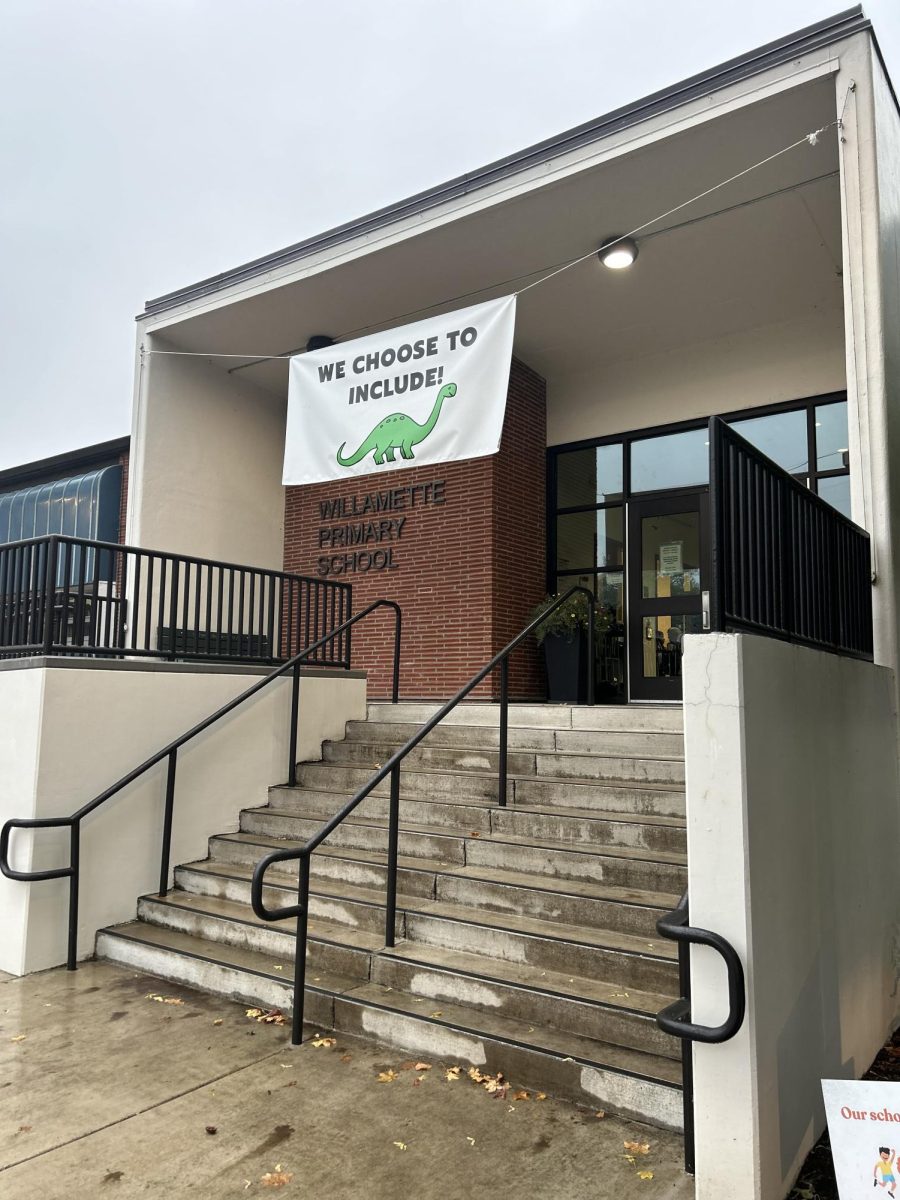






















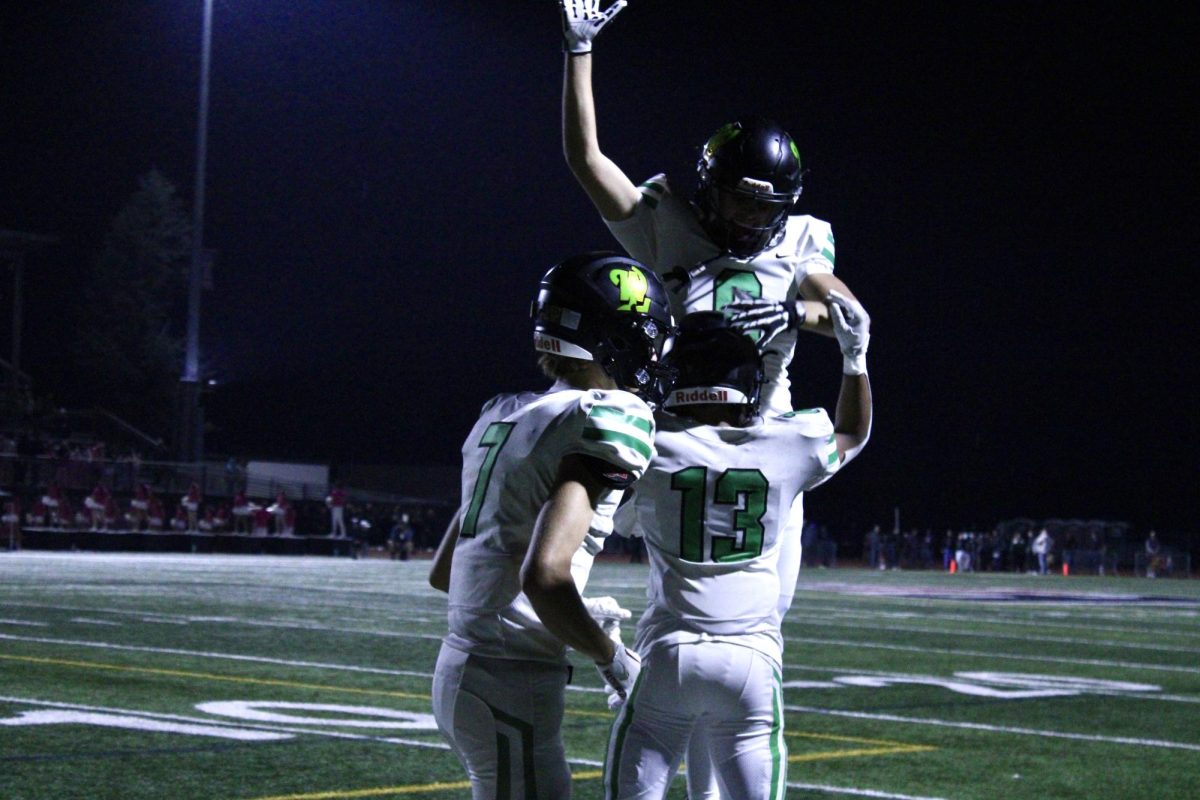













![At the bottom of the third inning, the Lions are still scoreless. Rowe stands at home plate, preparing to bat, while Vandenbrink stands off to the side as the next batter up. Despite having the bases loaded, the team was unable to score any runs. “It’s just the beginning of the season. We’re just going to be playing out best by June, [and] that’s where champions are,” Rowe said.](https://wlhsnow.com/wp-content/uploads/2024/03/IMG_3077-1200x900.jpg)


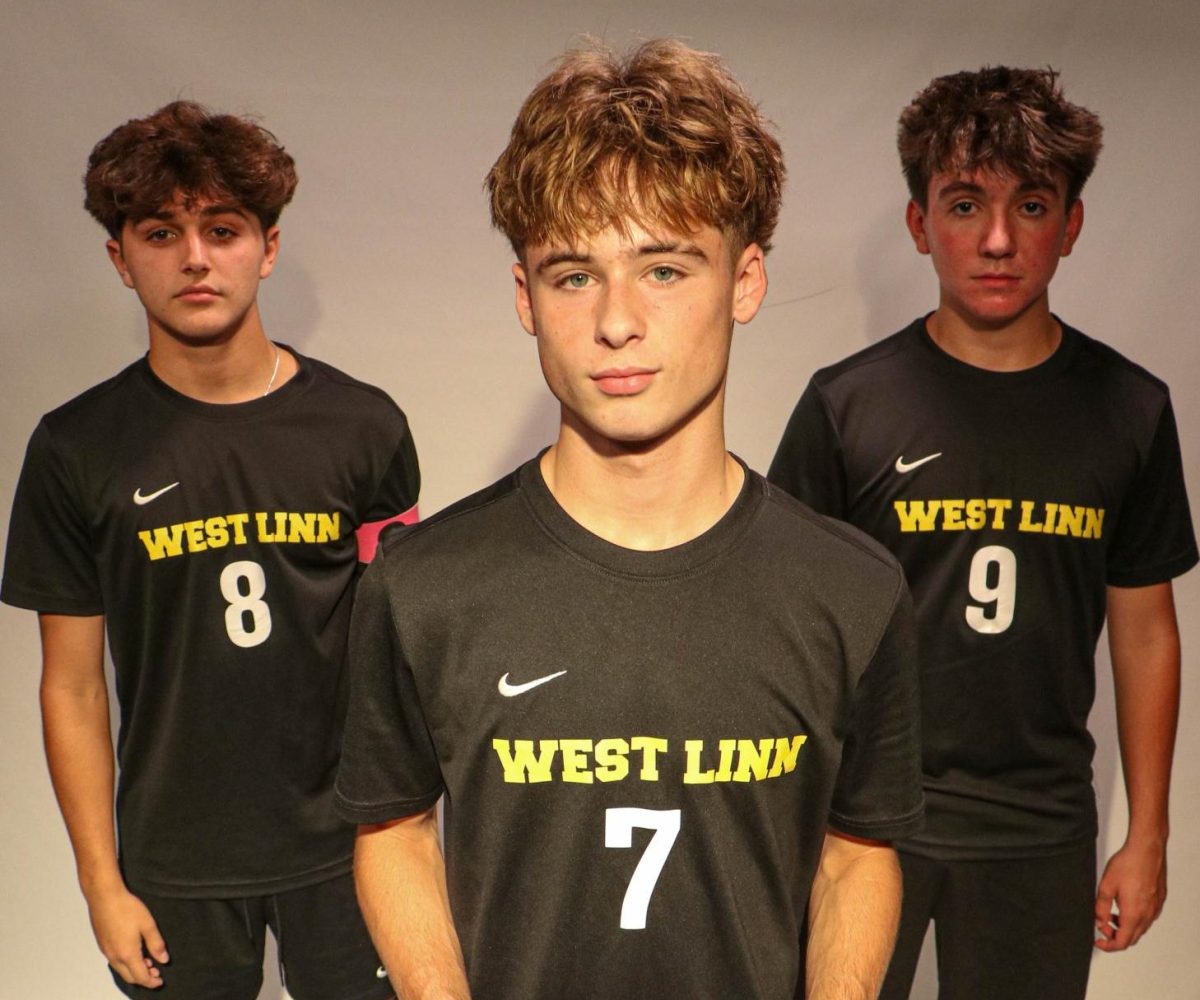




































![All smiles. The group poses for a photo with last year’s book, “This is Our House,” along with their award for third Best in Show. Meikle, who was an Editor-in-Chief for the yearbook last year as well, holds both and stands at the center of the group. “That was an amazing feeling, going and grabbing the third place award,” Meikle said. “All of it paid off. I cried so much over that book, being able to receive [the award] was one of the highlights of my high school career, it was like the coolest thing ever.”](https://wlhsnow.com/wp-content/uploads/2024/11/8bookpose_philly-1200x800.jpg)

















